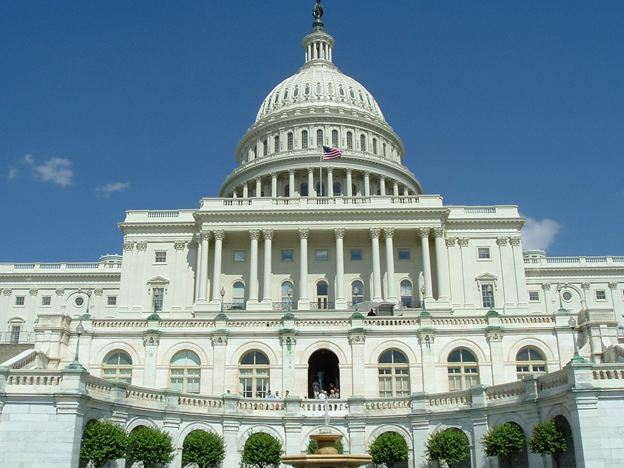1970: Students’ Changing Views on the Role of the Federal Government

In many ways, 1970 was very much a continuation of the unrest and social activism that was characteristic of the 1960s. However, this year also marked the beginning of a “New Right” that sought to renounce the social movements and freedoms of the previous decade. This new conservative backlash favored a return to traditional family roles and a federal government that stayed out of the concerns of the American people. The “New Right” believed that the government coddled poor people and Black people too much, all on the taxpayer’s dime. This new group sought to reign in the interference of the government and return to traditional values of individualism and independence.
Additionally, 1970 saw the occurrence of major events that would shape national policy for years to come. For example, the environmental movement continued to gain momentum, with the first Earth Day and the establishment of the Environmental Protection Agency. The women’s rights movement continued to fight for political and social equality for women, which included addressing issues such as marriage and divorce, the wage gap, and family planning. In addition, after complications, the Apollo 13 mission to the moon was abandoned, which slowed the space race for the United States. 1970 was also the year that President Nixon signed an extension of the Voting Rights Act of 1965 to lower the national voting age to 18.
Finally, both higher education and the general public were shaken by the Kent State Massacre in May of 1970, in which the Ohio National Guard shot and killed unarmed students on campus who were protesting the Cambodian Campaign, a military incursion launched by the United States in Eastern Cambodia. All of these events not only shaped national policy, but they impacted the values and beliefs of students who were entering college for the first time. In order to capture the attitudes and beliefs about the role of government in various national issues, a bank of questions, only used in 1969 and 1970, was added to the CIRP Freshmen Survey.
During the next few years, to what extent do you think the Federal Government should be involved in each of the following national issues? (Response options: Eliminate any existing programs or remain uninvolved, Decrease involvement from current levels, Maintain current level of involvement, Increase involvement from current level, Initiate new crash program)
- Control of environmental pollution
- Use of tax incentives to control the birth rate
- Protection of the consumer from faulty goods and services
- Compensatory education for the disadvantaged
- Special benefits for veterans
- Control of firearms
- Elimination of poverty
- Crime prevention
- School desegregation
- Compensatory financial aid for the disadvantaged
- Provision of birth control information, pills or devices to the general population
- Military involvement in Southeast Asia
- Development of antiballistic missile (ABM) capability
- Control of TV and newspaper news reporting
- Space program
Interesting findings emerged both overall and by gender. For example, 92.9% of respondents indicated that they believed the Federal Government should increase involvement or initiate new crash programs to control environmental pollution. In contrast, only 16.5% supported this role for the Federal Government for military involvement in Southeast Asia. The overwhelming support for the environment contrasted with waning support for American military presence in Southeast Asia reveals a shift in the national priorities, as seen through the perspectives of this group of students.
In terms of gender differences, 42.5% of men believed that the Federal Government should increase their involvement or initiate new programs to control firearms, compared to the 54.6% of women who supported this level of involvement. Similarly, 30.5% of men supported increased or new federal support for the development of antiballistic missile (ABM) capability contrasted with only 15.9% of women. Finally, 38.7% of men thought that the Federal Government should increase or initiate involvement in the space program. On the other hand, only 22.6% of freshmen women supported this idea.
While there were varying opinions on the role of the Federal Government for many of these issues, it is clear that the events in 1970 coupled with the movement of the “New Right” influenced the beliefs of these students as they began their college careers.
Did you know…
21.4% of all entering freshmen indicated that in the past year, they frequently cursed or swore.
